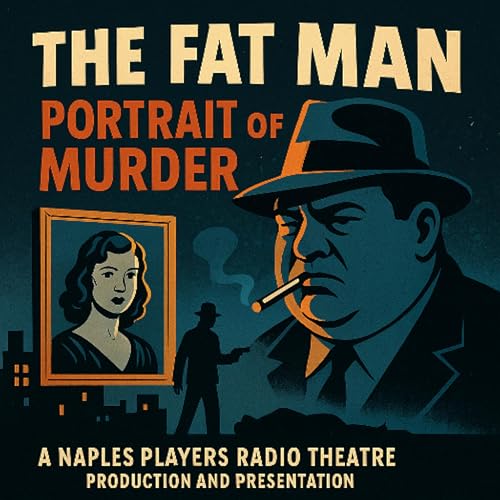Few stories have woven themselves so completely into the fabric of American storytelling as It’s a Wonderful Life. First released as a motion picture in 1946, Frank Capra’s film was initially met with modest success, only to grow—quietly and steadily—into one of the most beloved holiday traditions of the 20th century. Its message is deceptively simple: that an ordinary life, lived with kindness and integrity, can ripple outward in ways we may never fully see. But long before the story became synonymous with annual television broadcasts and snowy black-and-white images, It’s a Wonderful Life found another home—one that relied not on visuals, but on imagination. During the Golden Age of Radio, adaptations of popular films and stage works were a staple of American entertainment. Families gathered around their living-room radios much as we gather around screens today, listening to familiar stories re-told by voice, music, and sound alone. In that tradition, It’s a Wonderful Life was adapted for radio in the late 1940s, inviting listeners to create Bedford Falls in their own minds, to hear George Bailey’s quiet desperation and ultimate redemption without seeing a single snowflake fall. Our radio production is both a tribute to that era and a reaffirmation of why this story endures. Radio drama strips storytelling down to its essentials: voice, pacing, silence, and sound. Without images to guide us, we lean into the emotional truth of the characters. George Bailey becomes not just a man we watch, but a voice we sit beside. Clarence’s gentle wisdom feels more intimate. Mary’s love more personal. Bedford Falls becomes anywhere, and George Bailey becomes anyone who has ever wondered whether their life truly mattered. Producing It’s a Wonderful Life as a radio drama also feels especially appropriate today. In an age of relentless noise and spectacle, radio invites us to slow down, to listen closely, and to reconnect with the human scale of the story. It reminds us that heroism doesn’t require grand gestures—sometimes it’s found in staying, in caring, and in choosing others over ourselves. This production is made possible by a cast of generous voice actors who lend not only their talent, but their hearts to the story. Each performance is shaped by an understanding that It’s a Wonderful Life works not because it is sentimental, but because it is honest—acknowledging doubt, failure, and despair before arriving at hope. We offer this audio presentation in the spirit in which radio drama has always thrived: as a shared experience, meant to be listened to closely, perhaps with family or friends, and carried with you afterward. Whether this is your first visit to Bedford Falls or your hundredth, we invite you to close your eyes, listen, and rediscover why George Bailey’s life—like so many others—was, indeed, a wonderful one. This Naples Players Radio Theatre production features the vocal talents of Jesse Hughes, Pamela Dollak , Danny Miller, Vic Caroli, Kip Jones, Christian Conn, Theresa Bill, Lynne Young, Mitch Frank, John Heard, and Michael Troop . This audio file was recorded, mixed and mastered by Michael Troop. All music and sound effects were obtained through a special license from pond5.com and may not be copied or reproduced for any reason.
Show More
Show Less
 Feb 1 202629 mins
Feb 1 202629 mins Jan 1 202631 mins
Jan 1 202631 mins Dec 15 202558 mins
Dec 15 202558 mins Dec 3 202531 mins
Dec 3 202531 mins Nov 1 202531 mins
Nov 1 202531 mins 26 mins
26 mins Sep 1 202534 mins
Sep 1 202534 mins Aug 4 202533 mins
Aug 4 202533 mins
